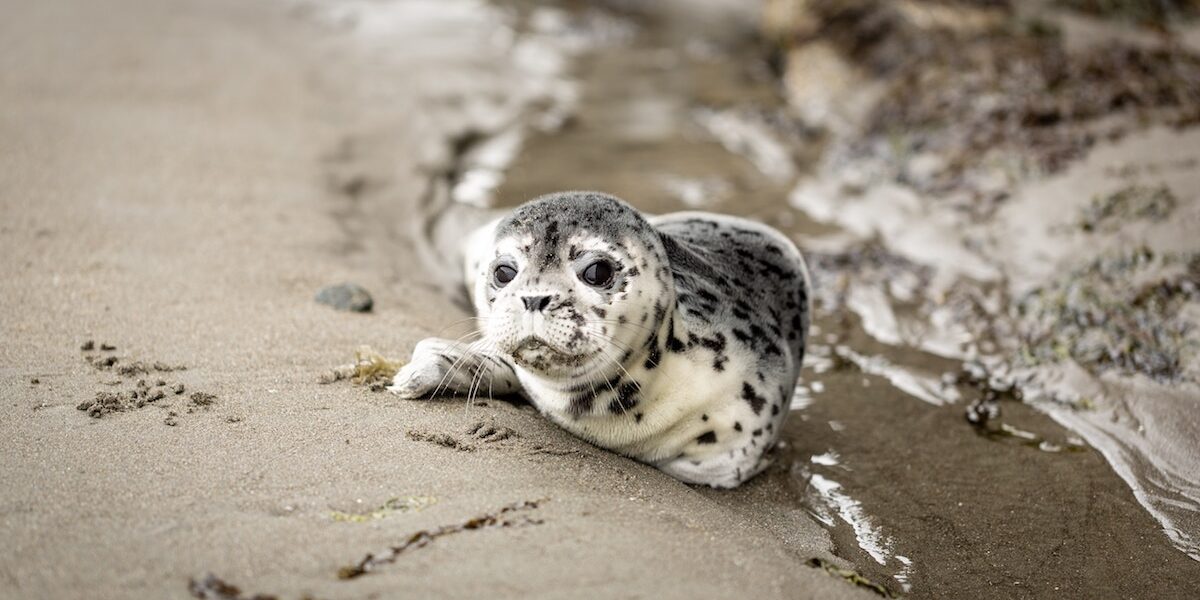By Michael Stocker, Founding Director of Ocean Conservation Research, a project of The Ocean Foundation
When folks in the conservation community think of marine mammals whales typically top the list. But there are quite a few more marine mammals to celebrate this month. The Pinnipeds, or “fin footed” seals and sea lions; the marine Mustelids – otters, the wettest of their kin; the Sirenians which include the dugongs and manatees; and the polar bear, considered a marine mammal because they spend most of their life in or above water.
Perhaps why the cetaceans stimulate our collective imaginations more than the other marine mammals is because human fates and mythologies have been inextricably woven into the fates of these animals for thousands of years. Jonah’s misadventure with the whale is one early encounter worth bringing up (in which Jonah was not eventually consumed by the whale). But as a musician I also like to share the tale of Arion – another musician around 700 years BCE saved by dolphins because he was recognized as a fellow musician.
The Cliff Note version of Arion’s tale was that he was returning from a tour with a chest full of the treasures he received in payment for his ‘gigs’ when in mid-transit the sailors on his boat decided that they wanted the chest and were going to toss Arion into the sea. Realizing that negotiating the appropriations matter with his shipmates was not in the cards, Arion asked if he could sing one last song before the ruffians disposed of him. Hearing the deep message in Arion’s song the dolphins arrived to gather him from the sea and deliver him to land.
Of course our other fateful engagement with the whales involves the 300 year whaling industry that lit and lubricated the major cities in the Western and European continents – until the whales were almost all gone (millions of majestic animals were extirpated, particularly in the last 75 years of the industry).
The whales came up again on the public sonar after the 1970 Songs of the Humpback Whale album reminded a larger public that whales were not just bags of meat and oil to be turned into money; rather they were sentient beasts living in complex cultures and singing evocative songs. It took over 14 years to finally place a global moratorium on whaling, so with the exception of the three rogue nations of Japan, Norway, and Iceland, all commercial whaling has ceased by 1984.
While mariners throughout history have known that the sea is full of mermaids, naiads, selkies, and sirens all singing their doleful, evocative, and enchanting songs, it was the relatively recent focus on whale songs that brought scientific inquiry to bear on the sounds that marine animals make. Over the past twenty years it has been found that most animals in the sea – from corals, to fish, to dolphins – all have some bioacoustic relationship with their habitat.
Some of the sounds – particularly those from the fish are not considered too interesting to humans. On the other hand (or the other fin) the songs of many marine mammals can be truly complex and beautiful. While the frequencies of the bio-sonar of dolphins and porpoises are much too high for us to hear, their social sounds can be in the range of human sound perception and really thrilling. Conversely many of the sounds of the large baleen whales are too low for us to hear, so we have to “speed them up” to make any sense of them. But when they are put in the range of human hearing they can also sound quite evocative, the chorusing of minke whales can sound like crickets, and the navigation songs of blue whales defy description.
But these are just the cetaceans; many seals – particularly those who dwell in the polar regions where darkness prevails during certain seasons have a vocal repertoire that is other-worldly. If you were sailing in the Weddell Sea and heard the Weddell’s seal, or in the Beaufort sea and heard the bearded seal through your hull you might wonder if you had found yourself on another planet.
We have only a few clues as to how these mysterious sounds fit into marine mammal behavior; what they hear, and what they do with it, but as many of the marine mammals have been adapting to their marine habitat for 20-30 million years it is possible that the answers to these questions are outside of our perceptual grasp.
All the more reason to celebrate our marine mammal kin.
© 2014 Michael Stocker
Michael is the founding director of Ocean Conservation Research, an Ocean Foundation program that seeks to understand the impacts of human generated noise on marine habitat. His recent book Hear Where We Are: Sound, Ecology, and Sense of Place explores how humans and other animals use sound to establish their relationship with their surroundings.







